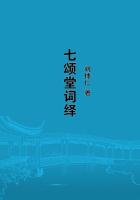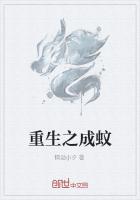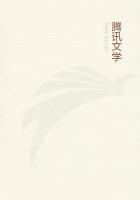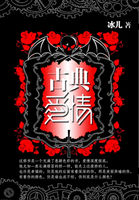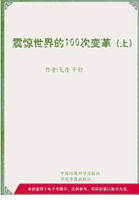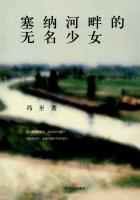IN THIS CHAPTER I propose to recapitulate the conclusions to which the enquiry has thus far led us, and drawing together the scattered rays of light, to turn them on the dark figure of the priest of Nemi.
We have found that at an early stage of society men, ignorant of the secret processes of nature and of the narrow limits within which it is in our power to control and direct them, have commonly arrogated to themselves functions which in the present state of knowledge we should deem superhuman or divine. The illusion has been fostered and maintained by the same causes which begot it, namely, the marvellous order and uniformity with which nature conducts her operations, the wheels of her great machine revolving with a smoothness and precision which enable the patient observer to anticipate in general the season, if not the very hour, when they will bring round the fulfilment of his hopes or the accomplishment of his fears. The regularly recurring events of this great cycle, or rather series of cycles, soon stamp themselves even on the dull mind of the savage. He foresees them, and foreseeing them mistakes the desired recurrence for an effect of his own will, and the dreaded recurrence for an effect of the will of his enemies. Thus the springs which set the vast machine in motion, though they lie far beyond our ken, shrouded in a mystery which we can never hope to penetrate, appear to ignorant man to lie within his reach: he fancies he can touch them and so work by magic art all manner of good to himself and evil to his foes. In time the fallacy of this belief becomes apparent to him: he discovers that there are things he cannot do, pleasures which he is unable of himself to procure, pains which even the most potent magician is powerless to avoid. The unattainable good, the inevitable ill, are now ascribed by him to the action of invisible powers, whose favour is joy and life, whose anger is misery and death. Thus magic tends to be displaced by religion, and the sorcerer by the priest. At this stage of thought the ultimate causes of things are conceived to be personal beings, many in number and often discordant in character, who partake of the nature and even of the frailty of man, though their might is greater than his, and their life far exceeds the span of his ephemeral existence.
Their sharply-marked individualities, their clear-cut outlines have not yet begun, under the powerful solvent of philosophy, to melt and coalesce into that single unknown substratum of phenomena which, according to the qualities with which our imagination invests it, goes by one or other of the high-sounding names which the wit of man has devised to hide his ignorance.
Accordingly, so long as men look on their gods as beings akin to themselves and not raised to an unapproachable height above them, they believe it to be possible for those of their own number who surpass their fellows to attain to the divine rank after death or even in life. Incarnate human deities of this latter sort may be said to halt midway between the age of magic and the age of religion. If they bear the names and display the pomp of deities, the powers which they are supposed to wield are commonly those of their predecessor the magician. Like him, they are expected to guard their people against hostile enchantments, to heal them in sickness, to bless them with offspring, and to provide them with an abundant supply of food by regulating the weather and performing the other ceremonies which are deemed necessary to ensure the fertility of the earth and the multiplication of animals. Men who are credited with powers so lofty and far-reaching naturally hold the highest place in the land, and while the rift between the spiritual and the temporal spheres has not yet widened too far, they are supreme in civil as well as religious matters: in a word, they are kings as well as gods. Thus the divinity which hedges a king has its roots deep down in human history, and long ages pass before these are sapped by a profounder view of nature and man.
In the classical period of Greek and Latin antiquity the reign of kings was for the most part a thing of the past; yet the stories of their lineage, titles, and pretensions suffice to prove that they too claimed to rule by divine right and to exercise superhuman powers. Hence we may without undue temerity assume that the King of the Wood at Nemi, though shorn in later times of his glory and fallen on evil days, represented a long line of sacred kings who had once received not only the homage but the adoration of their subjects in return for the manifold blessings which they were supposed to dispense.
What little we know of the functions of Diana in the Arician grove seems to prove that she was here conceived as a goddess of fertility, and particularly as a divinity of childbirth. It is reasonable, therefore, to suppose that in the discharge of these important duties she was assisted by her priest, the two figuring as King and Queen of the Wood in a solemn marriage, which was intended to make the earth gay with the blossoms of spring and the fruits of autumn, and to gladden the hearts of men and women with healthful offspring.
If the priest of Nemi posed not merely as a king, but as a god of the grove, we have still to ask, What deity in particular did he personate? The answer of antiquity is that he represented Virbius, the consort or lover of Diana. But this does not help us much, for of Virbius we know little more than the name. A clue to the mystery is perhaps supplied by the Vestal fire which burned in the grove. For the perpetual holy fires of the Aryans in Europe appear to have been commonly kindled and fed with oak-wood, and in Rome itself, not many miles from Nemi, the fuel of the Vestal fire consisted of oaken sticks or logs, as has been proved by a microscopic analysis of the charred embers of the Vestal fire, which were discovered by Commendatore G.

